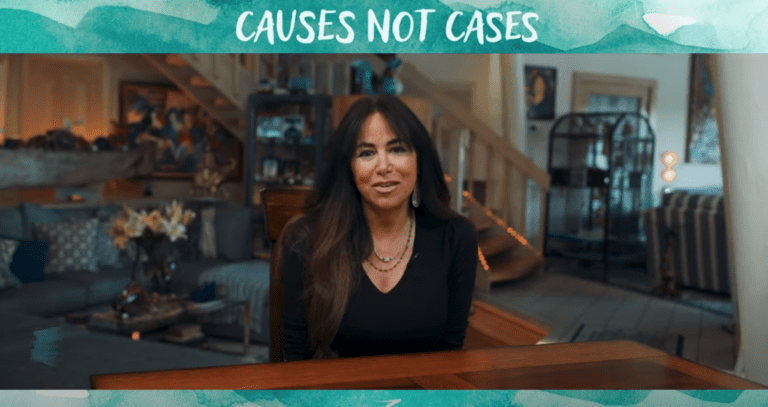
If you sustained injuries due to someone else’s negligence, you could seek compensation. While it’s possible to settle without an attorney, having one by your side can maximize your recovery.
So, how much does it cost to hire one?
Personal injury attorneys usually receive a percentage of the final settlement or court award. The percentage an attorney receives will depend on a variety of case specific factors. Fortunately, if you fail to settle or win a court judgment, you usually don’t need to pay attorney fees.
Let’s take a closer look at what lawyers can earn when working on your personal injury case.
What is a contingency fee?
A contingency fee is a commission an attorney receives after the case concludes. It usually varies, depending on the lawyer and the complexity of the claim. (More about that later.) Once you receive the settlement, you need to pay the agreed amount to the attorney.
When you hire a personal injury lawyer, you sign a contract. In this contract, you will find the contingency fee. At this point, you could negotiate the percentage with the law firm. However, most experienced attorneys have a set fee for specific cases.
An attorney receives the contingency fee only if they are successful in obtaining a recovery. If you lose the case, a law firm doesn’t get any money.
Why the risk?
Agreeing not to receive any money if the case is lost may seem like a serious risk for an attorney to take.
- Calculated risk – while lawyers risk working without compensation, they rarely take on hopeless cases. Before signing a contract, attorneys evaluate your case and determine how likely they are to win it.
- Incentive – a contingency fee stimulates attorneys to do their best. Otherwise, they won’t get paid. When lawyers negotiate a higher settlement, their fee increases. That’s one of the reasons personal injury attorneys fight hard to maximize your payout.
When a person sustains injuries in an accident, medical providers are likely to bombard them with bills. Serious injuries may cause victims to face disabilities and substantial loss of income.
These people don’t always have extra money to pay for an attorney’s services. That’s why contingency fees are a great way to obtain compensation without any upfront expenses.
What is a contingency agreement?
A contingency agreement is a contract between the lawyer and the plaintiff, which sets forth the scope of the attorney’s representation of the plaintiff. It also includes the percentage of the settlement a lawyer will receive after the case concludes.
Take the time to go over the contingency agreement to learn which other costs you may need to pay.
What affects the contingency fee?
Many personal injury attorneys offer a free case evaluation. During this evaluation, they go over all facts and evidence available in your case. At the same time, they can set a contingency fee.
This fee can vary due to:
- Complexity – if your case is complex, the lawyer is likely to set a higher contingency fee. Complex cases usually take longer and require extra work. The initial evaluation will give attorneys an idea of how hard it will be to get a fair settlement.
- Risk – when attorneys agree to take only a risky case, they set higher fees.
- Trial – many cases settle by negotiating with an insurance company. However, some of them need to go to trial. If attorneys see that a trial may be necessary, they could set a higher contingency fee.
- Experience – lawyers with extensive experience may charge higher fees than those who haven’t been dealing with personal injury cases for many years. Since an experienced lawyer is more likely to win a complex case, higher fees are often justified.
Not all the money attorneys receive after a settlement goes into their bank accounts. Personal injury cases require many expenses that law firms cover.
What are the different types of contingency fees?
Even if your attorney works on a contingency fee basis, some variations are possible.
- Pure contingency payment – you don’t pay the law firm unless you receive a settlement. Once the settlement is in, you pay the percentage mentioned in the contingency agreement.
- Hourly payment – you don’t pay any money to an attorney unless you get a settlement. During the case, the law firm keeps track of the hours it spends working for you. Once you receive the money, you will need to pay the attorney for the hours worked.
- Hourly–contingent payment – the attorney charges by the hour, but you only pay a part of the hourly rate. You cover the rest only if you win the case. For example, an attorney charges $200 per hour, but you only pay $50 while the case is active. Once the settlement comes through, you pay the remaining $150 for each hour worked.
- Another way a contingency fee agreement may work is according to a “sliding scale.” In this arrangement, the contingency fee percentage depends on when your case resolves.
For example, if the case settles before going to court, an attorney may charge a lower percentage than when you have to file a personal injury lawsuit. If the lawsuit enters the trial stage, the fee could go up.
A sliding scale is a fair option for both the law firm and the client. It’s especially useful in complicated cases when lawyers have difficulty predicting outcomes.
Are litigation costs part of the contingency fee?
There is a big difference between paying the contingency fee to the attorney before or after subtracting litigation costs.
For example, your settlement is $100,000 and the litigation costs are $10,000. If the law firm receives a 30 percent fee before the litigation costs, it gets $30,000. If they get the same percentage after, they get $27,000.
Common litigation costs include:
#1. Expert Witness Fees
In personal injury cases, expert witness testimony may be vital to the size of your settlement. For example, a plaintiff involved in a serious car accident may suffer from PTSD. We know that this diagnosis will require long-term care and that can present financial hardships for the plaintiff well after the case has been resolved. Accordingly, your personal injury attorney will include the cost of this future care in any demand made to the insurance company.
To calculate how much money the injured plaintiff needs for covering this type of therapy, the court needs a mental health expert’s testimony. Without this testimony, you may not get fair compensation for pain and suffering.
Almost 75 percent of expert witnesses request an up-front retainer. An initial retainer fee can be upwards of $2,000. The retainer fee is usually consistent with the expert’s knowledge and experience within his or her particular field of study.
#2. Administrative Fees
While seemingly minor, these fees tend to add up. They include copying, delivery, and messaging.
In personal injury lawsuits, attorneys work with sizable medical reports. Copying and mailing them can be costly. The more details and participants the case has, the higher administrative fees are.
In some cases, litigation can last for months or even years. If that happens, administrative fees could reach thousands of dollars.
#3. Deposition Costs
Before the case goes to trial, an attorney subpoenas records and takes the deposition of the other case participants and witnesses. During deposition, the plaintiff, defendant, and witnesses appear in front of the court reporter and answer questions.
The cost of the deposition depends on:
- How long it takes.
- Whether the deposition is videotaped.
- The court reporter’s rate.
- The witness being deposed.
For example, if a court reporter charges $5 per page and produces 70 pages an hour, the final cost of an hour-long deposition will be $350.
#4. Court Costs
From filing fees to serving expenses, your lawyer may front several hundred dollars in court costs.
In many personal injury cases, you may only obtain a fair settlement by going to trial. Your attorney will evaluate the risks and advantages of such a decision and advise you accordingly. If negotiations with insurance companies or the defendant don’t go well, going to court could be the only option.
If you win your case in court, you could get a sizable compensation.
You would need to cover these expenses whether you hire an attorney or not. However, when you work with a law firm, it may pay these fees and costs. Once you get the settlement, the lawyer will subtract these expenses from the final amount.
High litigation costs are another reason to hire an experienced attorney. Without proper legal representation, you could lose your case and end up adding litigation costs to your injury-related expenses.
Is there a maximum contingency fee?
Currently, there is no legal limit on contingency fees in most personal injury cases.
However, California Business & Professions Code Section 6146 limits medical malpractice lawsuits to:
- 40 percent of the first $50,000 recovered.
- 33.3 percent of the next $50,000 recovered.
- 25 percent of the next $50,000 recovered.
- 15 percent of any amount that exceeds $600,000.
A California Lawyer Contingency Fee Limit Initiative may appear as an initiated state statute in November 2022. If passed, it could cap the contingency fee at 20 percent of the recovery amount. This would discourage lawyers from taking cases from injured people. Voters should reject it.
What are other ways to pay an attorney?
Not all attorneys agree to receive a contingency fee. Some cases may seem extremely costly to the law firm, so they may suggest another payment scheme.
It may include:
- Retainer fee – this type of fee is similar to a down payment. The lawyer will ask for a certain amount to get started with the case. The fee depends on the lawyer’s evaluation of your case. A lawyer can charge anything that goes beyond the retainer fee on an hourly basis.
- Hourly basis – many lawyers choose to charge clients by the hour. You would get a monthly bill with a breakdown of how many hours the attorney spent on your case. This scheme means making monthly payments.
- Flat fee – if your case is mostly straightforward, an attorney could charge a flat fee. Some firms have special fees set specifically for different types of cases. The fee covers your lawyer’s services regardless of how long they end up working on your case.
When you choose one of the above ways to pay a lawyer, you don’t get any guarantees. If you lose the case, you still have to make payments. Meanwhile, with a contingency fee, you don’t pay unless there is a settlement.
If an attorney of your choice is offering a per-hour payment scheme for your personal injury case, you may want to consider looking at other candidates. Legal fees add up quickly. Even if you win the case, you could end up with much less money than you expected.
How does the law firm receive the payment?
If you sign a contingency agreement, your attorney will get the settlement check. The lawyer will notify you as soon as it arrives. The firm will keep the agreed-upon percentage and give you a detailed breakdown of what it deducts from the settlement to cover fees, costs, and expenses.
If you don’t agree with the breakdown, you can dispute it. During this time, the disputed amount will remain in the client-trust account.
Should you agree to the contingency fee?
Working with a personal injury lawyer on a contingency fee basis is highly beneficial. You don’t need to make any upfront payments or worry about legal expenses after the case is over. This provides an avenue for injury victims who don’t have sufficient funds to hire a lawyer.
Even the most straightforward personal injury case could become complicated down the road. Working on it without an attorney may lead to serious mistakes that could cost you a fair settlement.
A contingency fee allows you to get proper legal representation without any regular payments. If you don’t win the case, you don’t need to pay for the lawyer’s work. Knowing that you don’t owe any money unless you get a settlement makes contacting an attorney much easier.







